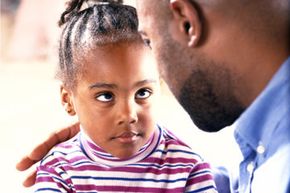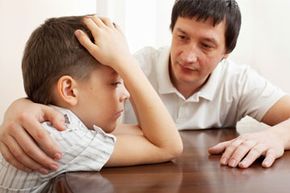What do you say to kids when a space shuttle explodes during its launch? Or when 3,000 Americans die in the World Trade Center during a terrorist attack? Or when a hurricane floods a city and kills more than 1,000 people? What do you say when there's a shooting in a movie theater, or when 20 students and six adults are shot and killed at an elementary school?
It's inevitable kids will hear (or overhear) news of a tragedy from friends, another parent, or from a teacher. That's OK; you can't and shouldn't shield children from talking about the events in the world around them. You can and should, though, be proactive and be the primary source of information -- even when you may not know what to say.
Advertisement
It's important for parents to be in control the sources from whom their children get information about a tragedy. Parents have the opportunity to minimize kids' anxiety and fear about a bad situation if they are the ones who deliver the news. Curtail a child's exposure to media coverage about a tragic event -- and while that means turning off the TV, it also means controlling the information your children may see through other sources, such as social media. Repeated exposure to coverage of tragic events isn't healthy for any of us. Keep the lines of communication open with your child's teacher so you know that the information being shared in the classroom and the school is in tune with how your child is coping.
If these big conversations feel overwhelming, you're not alone. One of the biggest hang-ups adults have when confronted with talking about tragedies with children is what to focus on. (Another hang-up: where to begin.) The secret? There are two, actually. First, calm yourself before you begin talking to your kids. Manage your own emotions as much as you can before you talk to them; you're probably keenly aware that they're tuned in to adult feelings, and you won't hide any anxiety, worry, fear, sadness or anger from them. Take a moment, no matter how brief, to tend to yourself first, and don't be afraid to be honest with a child about your feelings -- it's OK to admit to a child that you're sad or that you don't have an answer [source: NASP].
And what about when it comes to that actual conversation? Just follow their lead. Let's talk about what that means and tips on how to do it, next.
Advertisement




